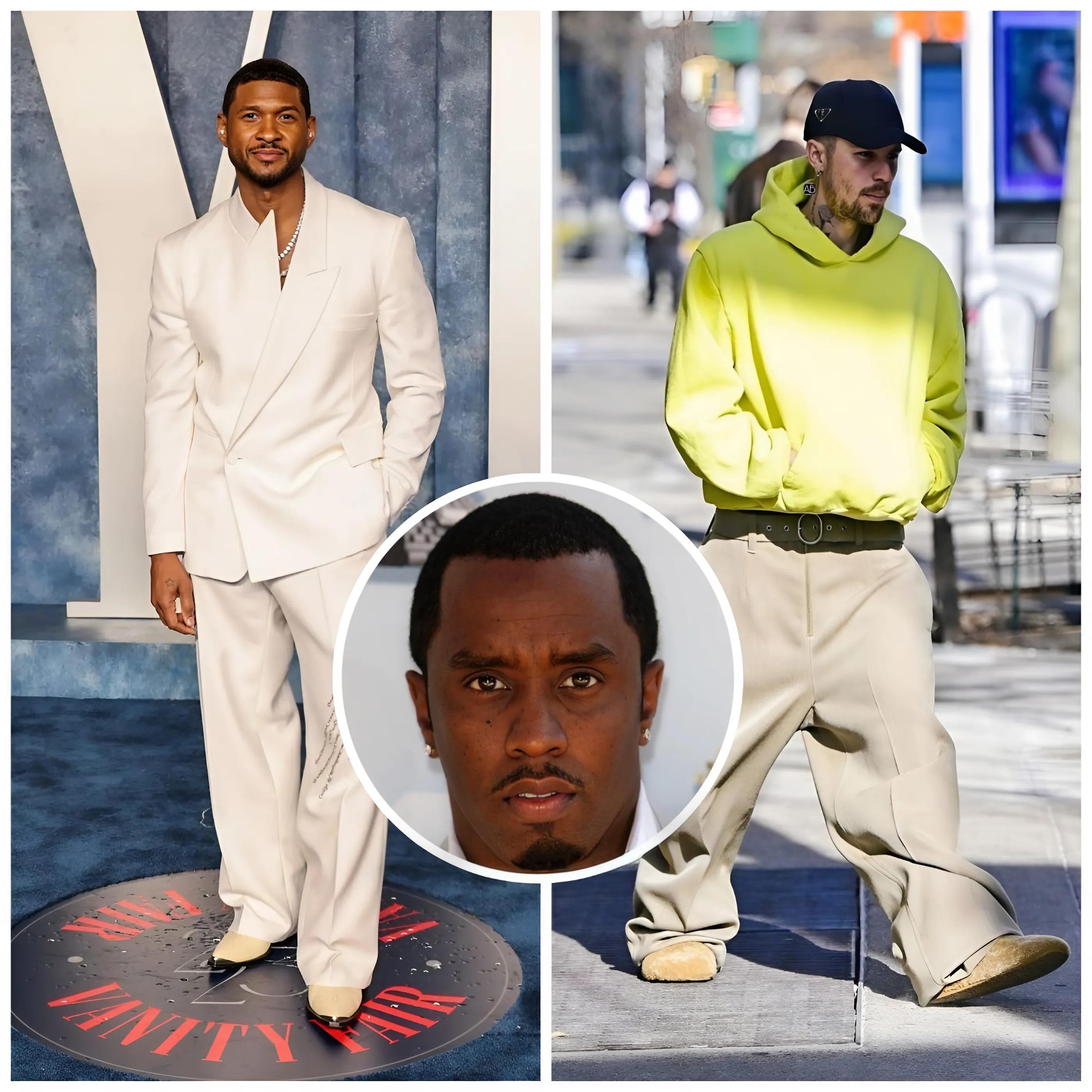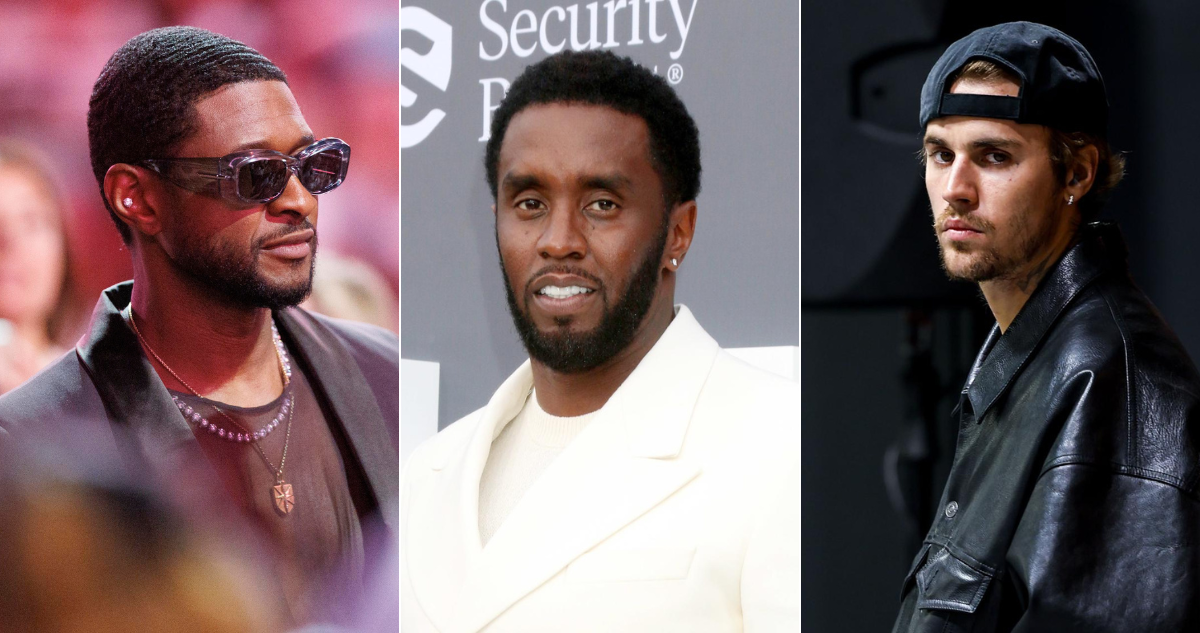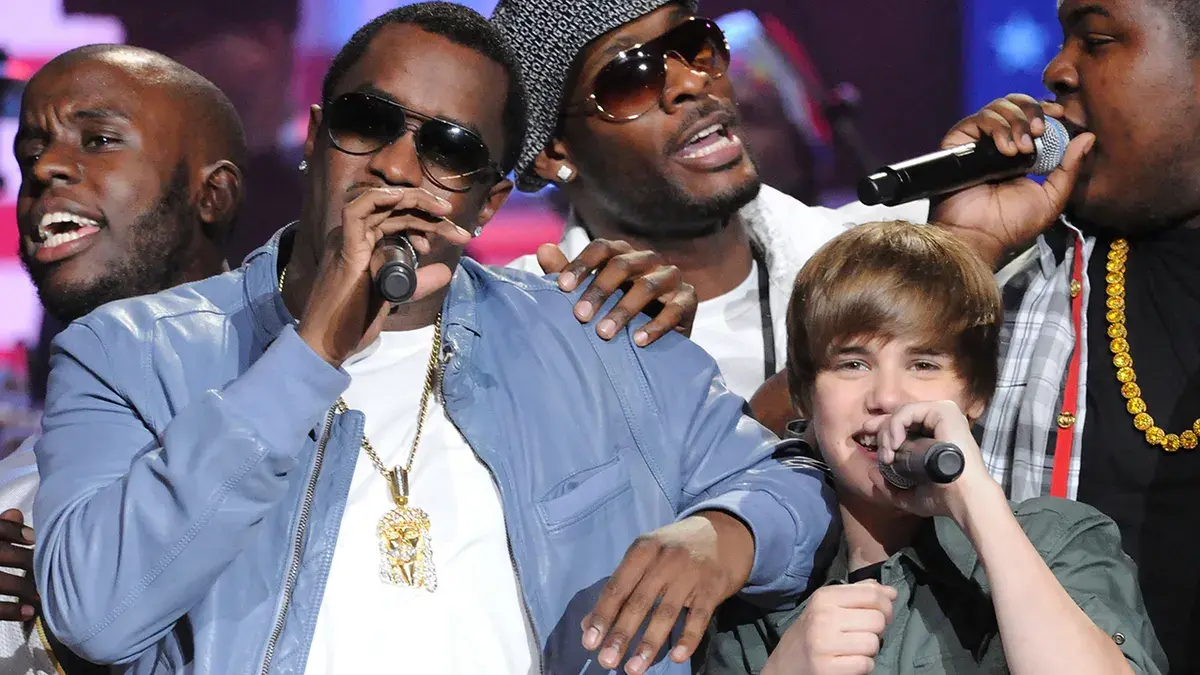The music industry is once again rocked by serious allegations as Usher is being held accountable for taking 15-year-old Justin to Sean “Diddy” Combs, despite knowing that the environment was far from safe. This revelation sheds light on the darker side of the entertainment world, where fame and fortune sometimes come at a high personal cost.

Usher, a legendary figure in R&B, had been closely associated with Diddy for many years, experiencing firsthand the complexities and pressures within that circle. According to insiders, despite his awareness of the troubling dynamics surrounding Diddy’s circle, Usher reportedly handed over young Justin, exposing him to an unsafe and emotionally taxing environment. This decision has ignited a heated debate about responsibility, mentorship, and protection in the industry.
While Justin was given material success and access to resources that many young artists dream of, sources reveal that the emotional and psychological toll was devastating. Far from the glamorous life portrayed in the media, Justin reportedly struggled profoundly, becoming “a shadow of himself.” Reports indicate he suffered from severe depression, feeling isolated and without a trusted confidant to share his struggles.

Justin’s story took a deeply personal turn when he courageously narrated his experiences during a church gathering. His emotional account moved many, as he openly spoke about the pain, loneliness, and mental health challenges he endured behind the scenes of his seemingly successful career. The raw honesty of his testimony sparked widespread empathy and calls for greater awareness about the often-hidden struggles young talents face.
This revelation also highlights critical issues within the entertainment industry regarding the safeguarding of young artists. Despite the wealth and fame that come with early success, many youth grapple with intense pressure, exploitation risks, and lack of adequate emotional support. Justin’s experience serves as a poignant example of the gap between public perception and private reality.

Determined to break the cycle, Justin has publicly vowed never to allow his own child to endure the hardships he faced. His commitment signals a powerful message about learning from past wounds and striving to create a healthier, more supportive environment for the next generation.
The unfolding situation has sparked broader conversations about accountability among influential figures like Usher and Diddy. Fans, industry insiders, and mental health advocates alike are urging for greater protections and ethical considerations when mentoring young artists. The hope is that lessons from Justin’s story will drive meaningful change and encourage a culture where young talents are nurtured holistically.
In conclusion, the criticism directed at Usher for introducing Justin to Diddy amid known safety concerns underscores complex issues of trust, responsibility, and care in the music industry. Justin’s courageous revelation and his promise to protect future generations highlight the urgent need to address the emotional well-being of young artists. This story serves as a sobering reminder that true success goes beyond fame and fortune—it requires a foundation of safety, support, and compassion.